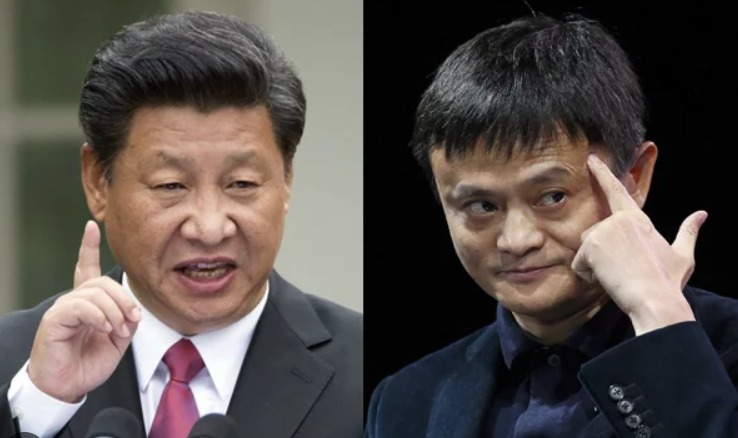Virendra Pandit
New Delhi: After going hammer and tongs against its many billionaires since 2021 and dragging down the world’s second-largest economy into the pit, the Communist Party of China (CPC) may have, belatedly, come to senses about the foolhardiness of digging its own foundations.
Now, the CPC, led by President-for-Life Xi Jinping, has warned its cadres against “inappropriate interference” in private businesses.
The short-sightedness of twisting the arms of those who strengthened the muscles of the Chinese economy is now reflected worldwide in the accelerating collapse of President Xi’s albatross-like dream project, the Belt and Road Initiative (BRI). After China sank billions of dollars into this mega-project and trapped many countries, it is watching them check out of the BRI, reconsider its debt traps, or simply go cold.
The ‘failure’ of the BRI was seen in this week’s BRI Summit—only 23 Heads of Government or State turned up, although China claims it had enrolled over 130 countries with its transcontinental project. Russian President Vladimir Putin was the only notable presence in the much-touted Summit.
No wonder these severe reverses have forced China to introspect.
As the Chinese economy struggled to recover from the post-COVID pandemic blues and anti-monopoly campaigns, the ruling CPC, in an attempt to bolster sagging business confidence, has warned its overzealous cadre against “inappropriate interference” in microeconomic activities.
The CPC led the anti-monopoly campaign to rein the country’s multi-billion businesses like Alibaba and corporate leaders like Jack Ma, who suddenly announced his retirement in 2019 and spent the following years mostly abroad.
The self-made Ma, the second best-known Chinese overseas after President Xi, and a role model to millions of Chinese youths, returned home in March 2023 following assurances of ‘friendly’ policies for the private sector to revive the struggling economy. Premier Li Qiang, who is seen as a friend, persuaded Ma to return home.
This followed some mid-course correction assurances from Xi, under whose watch the CPC carried out a massive anti-monopoly campaign against top business houses including Alibaba which panicked private businesses, global investors, and other stakeholders.
Besides the crackdown, several top businessmen were whisked away by security agencies for endless questioning at secret locations and even imprisoned on trumped-up charges like corruption. The problem was accentuated by prolonged stringent COVID-19 lockdowns, and the so-called Zero COVID policy, leading to huge losses for businesses, many of which collapsed and rendered millions jobless.
On Wednesday, an article in the Study Times, an education journal of the CPC Central Party School, widely read by officials at all levels to gauge which way the winds are blowing in Beijing, warned the cadre not to overstep.
Cai Zhibing, an Associate Professor of the Economics Teaching and Research Department at the Central Party School, claimed that curbing the inappropriate interference of authorities in microeconomic activities has always been a key task in the reform of China’s economic system. He cited dictates in the Central Anti-Corruption Coordination Group Work Plan (2023-27) released in September.
Such interference means those officials are not considering the requirements of high-quality development, as championed by the party’s Central Committee, Cai said, adding that some authorities are not strict and civilized when it comes to law enforcement.
And one-size-fits-all regulations and measures that have popped up across the country have greatly increased economic uncertainties, burdens, and risks for businesses, Cai said, without pointing any fingers, the Hong Kong-based South China Morning Post reported on Thursday.
He blamed the pandemic, changes in global trade trends, and shifts in domestic development focus for an ‘imbalance’ in local government finances, warning that this has subsequently incentivized regional authorities to turn more aggressive in seizing assets and assessing fines, seeking any means to raise revenue.
Because of this, such interference has disturbed the order of operation, harmed the business environment, and affected confidence in business operations, Cai said.
He explained that reducing inappropriate interference in economic activities involves mitigating authorities’ circumvention of market-economy rules and ensuring fair and full market competition while effectively revitalizing market vitality.
China’s National Bureau of Statistics (NBC) on Wednesday cautioned that the country’s external environment was becoming more complex and graver and warned that domestic demand remained insufficient.

